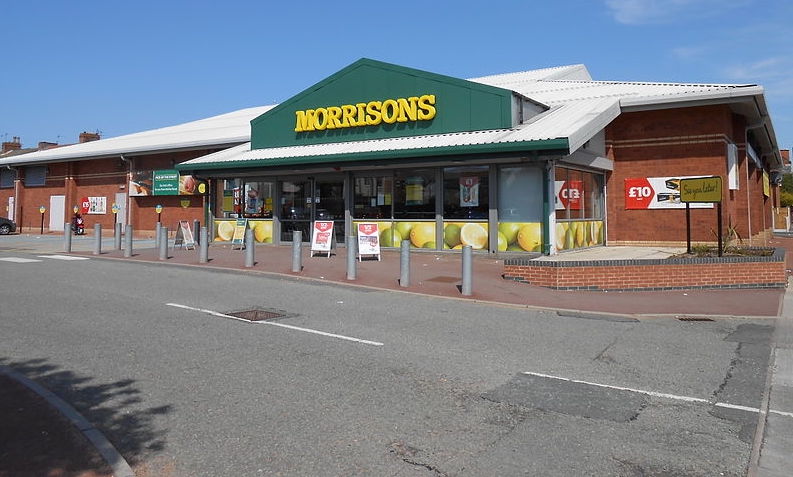Morrisons’ skyrocketing share price has come back to bite Blackrock and a handful of hedge funds that have been aggressively shorting the supermarket.
The UK’s fourth largest supermarket chain saw its shares take off on Monday after it rebuffed an unsolicited £5.5bn takeover bid from US firm Clayton, Dubilier & Rice on Saturday evening.
The American private equity house had offered to pay 230p a share in cash, a 29% premium to their 178.5p closing price on Friday.
On Monday, Morrisons’ shares leapt to 233p, a 31% increase, and steadily ticked up to 238p, a two-and-a-half year high for the FTSE 250 group.
Its bounding share price was welcome news for investors like Schroders and Columbia Threadneedle which hold the supermarket chain across several equity funds.
Blackrock shorting Morrisons, Sainsbury’s and M&S
But Monday’s move proved painful for a handful of investors who had been short the stock, including $9trn asset manager Blackrock.
Data from the Financial Conduct Authority shows 5.7% of Morrisons’ stock is being shorted currently, with Blackrock holding the biggest short position at 2.3%.
Hedge funds Pelham, Citadel and GLG Partners also have shorts out on the supermarket as does American billionaire Daniel Loeb’s hedge fund Third Point.
Morrisons short-sellers
| Fund | Short position (%) |
| Blackrock Investment Management | 2.29 |
| Citadel Europe | 0.73 |
| GLG Partners | 0.53 |
| Pelham Long/Short Master Fund Limited | 1.65 |
| Third Point | 0.50 |
Source: FCA
Hedge funds shorting rival supermarkets Sainsbury’s, Tesco and M&S also took a hit as their shares jumped between 2% and 4% amid speculation of further interest from private equity giants in the sector.
Excluding GLG Partners, the hedge funds shorting Morrisons all have bets against Sainsbury’s currently, which is also being shorted by Marshall Wace and KPS Global Asset Management.
Blackrock and Pelham are the only groups shorting M&S, while millionaire hedge funders Paul Marshall and Ian Wace have the sole short out on Tesco.
Blackrock is the largest of the short sellers, with a 2.5% position against Sainsbury’s and a 1.6% bet against M&S.
The winners
On the opposite side of the spectrum Schroders was one of the main ‘winners’ on Monday. Four of its funds feature the supermarket chain in their top 10 holdings, including Nick Kirrage and Simon Adler’s £264.6m Global Equity Income fund. The FTSE 100 fund house currently owns a 5% stake in the business.
Morrisons’ share price surge was also a boon for Columbia Threadneedle UK equities boss Richard Colwell. His £3.8bn UK Equity Income fund had the second largest weighting (3.11%) to Morrisons out of all the funds in the Investment Association universe, according to FE Fundinfo, while colleague Jeremy Smith’s UK Opportunities fund had the third biggest (2.7%).
Man GLG Income manager Henry Dixon is also among the winners, owning a 2.5% position in his £1.8bn fund.
Top 10 funds with highest weighting to WM Morrisons
| Fund | % |
| Schroder ISF European Equity Yield | 3.73 |
| Threadneedle UK Equity Income | 3.11 |
| Threadneedle UK Equity Opportunities | 2.70 |
| Man GLG Income | 2.51 |
| Barclays Global Access UK Opportunities | 2.40 |
| Schroder ISF Global Equity Yield | 2.21 |
| Schroder ISF Global Dividend Maximiser | 2.19 |
| Schroder Global Equity Income | 2.15 |
| MI Select Managers UK Equity Income | 2.00 |
| Threadneedle UK Social Bonds | 1.99 |
Source: FE Fundinfo
Hargreaves Lansdown senior investment and markets analyst Susannah Streeter said CD&R’s takeover bid “could spur others to jump on the conveyor belt and make bids of their own”. Amazon, which sells Morrisons’ groceries through its online platform in the UK, has been floated as a potential suitor.
Streeter said Morrisons is being eyed for a takeover because its online business, though quickly expanding, is smaller than its rivals “which leaves more room for exceptional growth”.
However, while the supermarket sector looks to be heating up, Streeter said there are signs it has begun to cool, including the 5.7% drop in retail food sales in May.
“As shoppers fill fewer baskets, there is likely to be further competition on price which could eat into margins at a time when continued investment is needed to expand online capacity,” Streeter said.
“So, the current supermarket sweep could turn into a disappointing bun fight as grocers battle to win market share.’’











